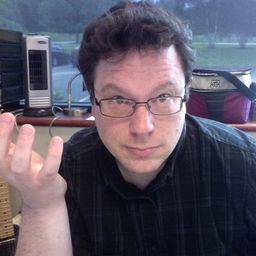
Moira Donovan
Freelance Writer at Canadian Broadcasting Corporation (CBC)
Radio + print journalist focusing on the environment. Docs for @Atlanticvoice @CBCQuirks, @cbcideas, words in @thewalrus, @hakaimagazine, @csmonitor. She/her
Articles
-
2 months ago |
nationalobserver.com | Moira Donovan
This process, commonly referred to as "carbon mineralization," occurs in nature, but it happens over a much longer time scale - hundreds or thousands of years.
-
Mar 13, 2025 |
e360.yale.edu | Moira Donovan
On the coast of Newfoundland, waste from a shuttered asbestos mine has been a troubling source of contamination for decades. Now, a company plans to process the waste to draw CO2 from the air — one of several projects worldwide that aim to turn this liability into an asset. Just outside Baie Verte, a tiny town on Newfoundland’s rocky north coast, a 50-ton toxic liability lingers like a bad dream. In the mid-20th century, a local prospector discovered asbestos in the hills above the bay.
-
Mar 13, 2025 |
e360.yale.edu | Moira Donovan
Moira Donovan is a science journalist based in Halifax, Nova Scotia. Her work has appeared in Hakai Magazine, The Economist, and The Atlantic, and has aired on CBC Radio.
-
Feb 24, 2025 |
nationalobserver.com | Moira Donovan |Adrienne Tanner
This story was originally published by bioGraphic and appears here as part of the Climate Desk collaborationThe Gulf of Maine is home to one of the most valuable fisheries in the United States. Every year, American lobsters (Homarus americanus) from the gulf fuel a multibillion-dollar industry, buoying fishing communities across New England and across the border into Atlantic Canada. The Gulf of Maine is also heating up faster than almost any other marine environment on Earth.
-
Feb 20, 2025 |
cbc.ca | Moira Donovan
Ideas53:59Naming Life: The Race to Classify Millions of Unidentified SpeciesIn a time of unprecedented biodiversity loss — what's in a name? In 2023 scientists announced a startling discovery in the Pacific Ocean — in a site proposed for deepsea mining, the seafloor was not a barren wasteland, but a rich underwater garden, bustling with life.
Journalists covering the same region

Meghan Morrison
Digital Content Specialist at Intrepid Travel
Meghan Morrison primarily covers news in Southern Maine and parts of New Hampshire, United States, including areas around Portland and surrounding towns.
Alison Murtagh
Producer at WGME-TV (Portland, ME)
Alison Murtagh primarily covers news in the Greater Portland area including surrounding towns in Maine, United States.

Sam Olsen
Multimedia Journalist and Weekend Anchor at WCSH-TV (Portland, ME)
Sam Olsen primarily covers news in the coastal region of Maine, United States, including areas around Bath, Brunswick, and Portland.
Laura Sitterly
Coastal Reporter at Maine Trust for Local News
Laura Sitterly primarily covers news in Southern Maine, United States, including areas around Portland and surrounding towns.

John Swinconeck
Digital Executive Producer at Spectrum News Maine
John Swinconeck primarily covers news in Southern Maine, United States, including areas around Portland and surrounding towns.
Try JournoFinder For Free
Search and contact over 1M+ journalist profiles, browse 100M+ articles, and unlock powerful PR tools.
Start Your 7-Day Free Trial →Coverage map
X (formerly Twitter)
- Followers
- 839
- Tweets
- 545
- DMs Open
- No

Finally catching up to other wise ones here and making the move - find me at https://t.co/SwlDz8yVuk

Greenhouses are energy hogs - and they're proliferating rapidly. But as I explored for @AmbrookResearch people are developing low or no-carbon alternatives - by tapping into the heat beneath our feat

Out of renewable energy sources, geothermal is one of the least discussed. But that's changing! Around the country, indoor farmers are pulling heat from inside the earth to power their greenhouses. New from @MoiraDonovan: https://t.co/GtzXcq82de

In the name of finding wonder in difficult times, sharing this story I wrote for @hakaimagazine on fascinating work by @kagiadi — 6 million years ago, the Mediterranean nearly dried up. How it recovered (or didn't) has lessons for our present moment





